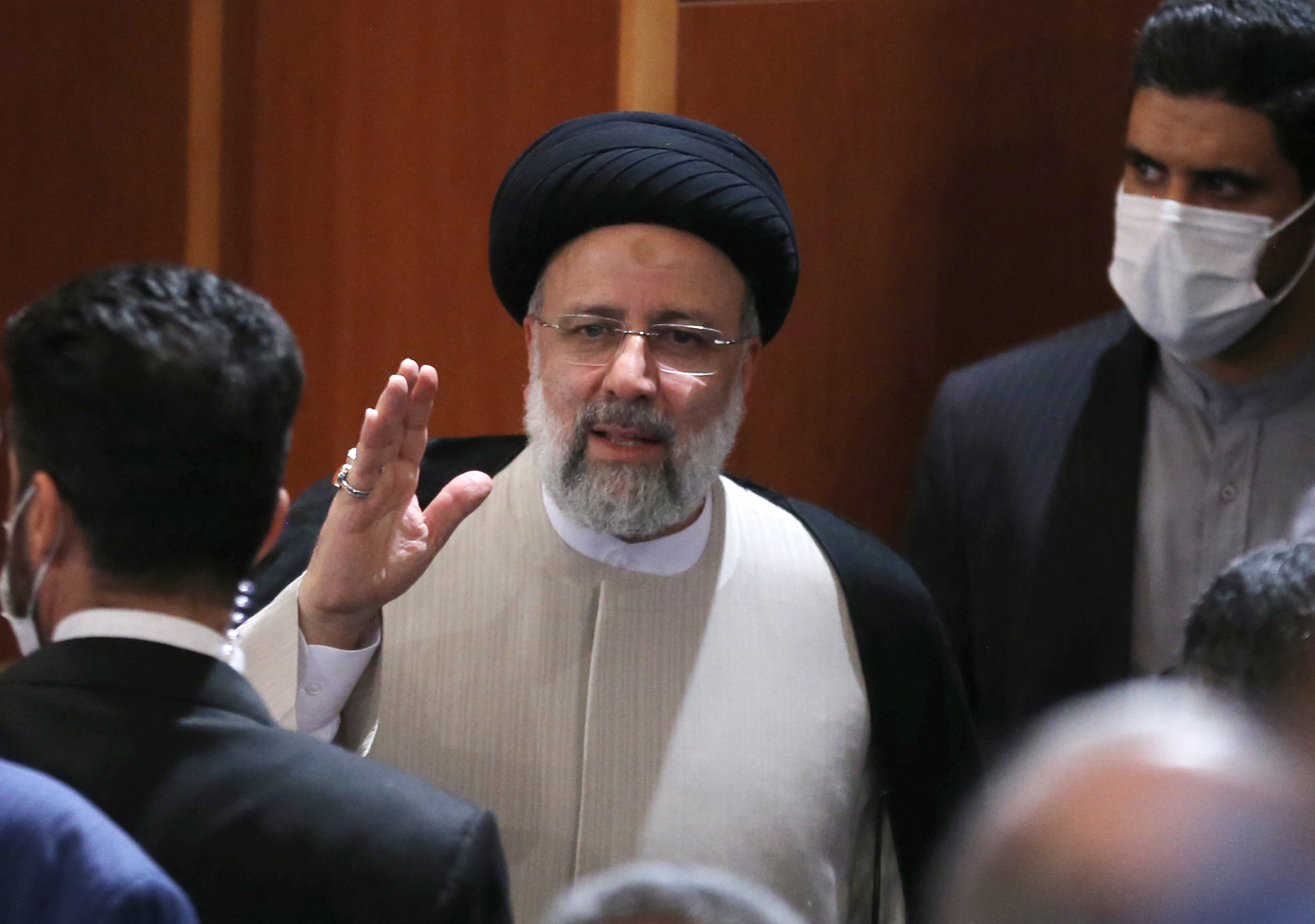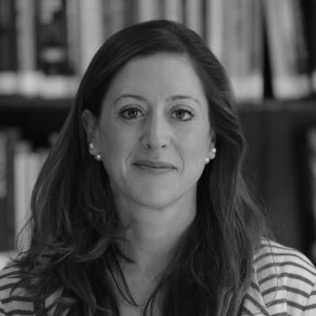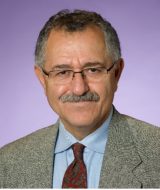
- 06 Jul 2021
Iran’s Presidential Election: Impact on the Islamic Republic’s Policies
(This event is organised by MEI Political Economy research cluster.)
Abstract
The engineering of president-elect Ebrahim Raisi’s victory in Iran’s recent election on 18 June 2021 constitutes a potential domestic and foreign policy watershed. Designed to ensure conservative control of all levers of power in Iran and help Supreme Leader Ayatollah Ali Khamenei manage his succession, manipulation of the election swept aside the Islamic republic’s long-standing democratic pretensions. Moreover, efforts to achieve American and Iranian agreement on a return to the 2015 international nuclear agreement could be complicated by the fact that the US has sanctioned Raisi for his troubled human rights record. This webinar will explore what impact the rise of Raisi will have on regional security in the Middle East.
This public talk will be conducted online via Zoom on Tuesday, 6 July 2021, from 4pm to 5.30pm (SGT). All are welcome to participate. This event is free, however, registration is compulsory. Successful registrants will receive a confirmation email with the Zoom details closer to the date of the event.
Image caption: Iran’s president-elect Ebrahim Raisi is pictured during his first press conference since his election on the weekend in Tehran, on June 21, 2021.
(Photo by ATTA KENARE / AFP)
Listen to the full event here:
Watch the full event here:
Read the Summary of Event Proceedings:
By Ilyas Salim
Research Assisstant, Middle East Institute, National University of Singapore
Dr Sanam Vakil
Deputy Director and Senior Research Fellow of the Middle East and North Africa Programme at the Royal Institute of International Affairs, Chatham House
Iran’s politics has been heavily influenced by internal and external challenges faced by the country. The presidential election that saw Hassan Rouhani coming into power enjoyed high voter participation and a central aspect of his presidency concerned the Joint Comprehensive Plan of Action (JCPOA), often called the Iran nuclear deal. Backed by a groundswell of popular support, Mr Rouhani was a key advocate of Iran’s participation in the nuclear deal.
However, new winds have since shifted the political climate. For many Iranians, the implementation of the JCPOA did not deliver economic relief, as the US withdrew from the arrangement and also imposed restrictive sanctions on Iran’s economy and political establishment. The principal pains of the sanctions were borne by ordinary Iranians — inflation skyrocketed to 40% according to informal estimates, unemployment rates increased and the national currency was devalued on numerous occasions. Iranians also had to endure a climate of heightened repression by an embattled government desperate to curb protests. The challenges faced by Iran’s population have been further compounded by the Covid-19 crisis, with the country suffering the highest death rates in the Middle East.
Given these challenges, the recent presidential election represented a consequential one for Iran’s populace — yet voter participation in the election sank to its lowest point in the republic’s history. The election was a controversial one, with the pool of candidates heavily narrowed by the overseeing Guardian Council in favour of conservative figures. While the current president-elect Ebrahim Raisi received the most votes, the second highest tally belonged to blank or spoiled votes — a clear sign of protest. It is thus evident that there is growing disenchantment between society and state, as well as rising frustration with reformist and moderate politicians who have been unable to deliver neither socio-liberal reforms nor relief from economic sanctions. The political disengagement of the Iran’s public has opened the door for conservative domination of the ballot box.
Prof Manochehr Dorraj
Professor of International Affairs at AddRan College of Liberal Arts, Texas Christian University (TCU), Fort Worth, Texas
As the ongoing discussions over the Iran nuclear deal continue to unfurl in Vienna, it is instructive to look at some of the structural constraints faced by both the US and Iran, as these will set the parameters for the outcome of the negotiations.
Firstly, within the US, there are no significant constituencies that favour a dramatic improvement of relations with Iran. The Republican party en masse is opposed to any nuclear deal with Tehran and even within the Democratic party, there are many who remain hawkish with regard to Washington’s Iran policy. The progressive faction represents the only side in favour of a recalibration of US-Iranian relations, yet their influence remains limited.
Secondly, there is currently no foreign policy crisis compelling enough to provide enough incentive for the US to pursue better relations with Iran. To give a past example, Washington’s desire to leave the Vietnam war was a significant motivating factor behind president Richard Nixons’ historic recognition of China. Yet, no comparable crisis exists now to tilt the American policy outlook on Iran.
Thirdly, Israel — which adamantly rejects any concessions to Iran — remains a significant influence on US policy in the Middle East.
The Biden administration aims to use the lifting of sanctions as leverage to negotiate Iran’s nuclear ambitions, missile policy and regional support of militias. Yet, from Tehran’s perspective, these are outrageously heavy demands. Given Iran’s lack of a potent air force, its missile system represents a key aspect of its national defence. This strategic view imposes a ceiling of sorts when it comes to the current nuclear negotiations and as such, president-elect Ebrahim Raisi has already declared that Tehran will neither concede its missiles nor regional policies. In addition, Tehran’s expanding ties with China and Russia have given it some autonomy to reject any concessions to the US.
Dr Mahmoud Pargoo
Research Fellow at the Middle East Studies Forum at Alfred Deakin Institute (ADI), Deakin University, Australia
In considering the impact of the newly elected administration of Ebrahim Raisi, it is important to contextualise the powers and placement of the president within Iran’s political structure. Importantly, religious authoritarian power is concentrated within its Supreme Leader Ayatollah Ali Khamenei who has control over several key bodies and institutes including the armed forces, the state broadcasting company and the powerful Guardian Council which vets presidential candidates.
Within Iran’s political system, there are four main bodies whose members are decided by elections. These are the presidency, the parliament, the expert councils and the city councils. Yet, this electoral aspect co-exists alongside the authoritarian role of the Guardian Council which approves the candidates who apply for membership within these organisations. In recent years, the Guardian Council has exerted its influence by narrowing the pool of suitable candidates, as seen by the increasing disqualification rates. In short, the regime seems to have lost its risk appetite and is now more unwilling to tolerate candidates that differ significantly from its own outlook. While the presidential office has power over many different instruments and institutions and has a more open hand in influencing domestic policy, it is limited in its ability to determine fundamental aspects of foreign policy, which remains the preserve of the National Security Council and whose dictates are approved by the Supreme Leader.
Contrary to the expectations of some analysts, it is unlikely, especially given Iran’s political architecture and the limited power of its presidential office, that the outcome of the recent presidential election will signal any great change for Iran’s fundamental foreign policies. Furthermore, while there are concerns over Mr Raisi’s reputation as a hardliner, he is actually a pragmatist with a relatively less hawkish orientation compared to other figures within the country’s hard conservative faction He also understands the need to cater to the various support bases in the country.
Dr Raz Zimmt
Research Fellow at the Institute for National Security Studies (INSS), Tel Aviv University
While the election of Ebrahim Raisi has instigated much discussion as to the direction Iran will now take, it is important not to overestimate the importance of the president, given that much of Iran’s regional policies is determined by the Revolutionary Guards. If we are to expect changes in Tehran’s policy, it would more likely be a response to the challenges that Iran has been facing in the region over the last few years. The nation has traditionally been able to project its influence throughout the region; yet its ability to do so has recently been hindered by various factors.
Firstly, Iran’s influence in countries such as Syria and Iraq has diminished due to the recent relative stabilisation of these countries; this has made it difficult for Tehran to justify its level of intervention within these states. Secondly, there has been growing public criticism of Iranian interference in the region not just from Sunni but also Shiite factions. This was, for example, demonstrated by the torching of Iranian consulates in Basra and Karbala by Iraqi protestors upset with Iran’s intervention in their country’s domestic politics. Thirdly, in its regional engagements, Iran has learned that it is not the only player as other powers have taken on vital roles as well. In Syria for instance, there has been growing competition between Iran and Russia over the issue of economic participation in the reconstruction of the war-torn country. The assassination of Iran’s Islamic Revolutionary Guard Corps general Qassem Soleimani by the US also dealt the country a severe blow, given his crucial involvement in creating and maintaining Iran’s network of regional proxies – his success is unlikely to be replicated by his successor Brigadier General Ismail Qaani.
In analysing Iran’s strategic regional calculations, two recent developments are deserving of attention. One is the prospect of growing Arab–Israeli ties in the form of the Abraham Accords, which would further restrict Iran’s ambitions in the region. Second, the US withdrawal from Afghanistan – a development that has sparked much commentary in Iranian media. It is not outside the realm of possibility that Tehran might look to divert some of its interests to Afghanistan, given General Qaani’s previous military experience in the country.
Highlights from the Q&A Session
A central part of the discussion revolved around the impact of the Iranian presidential election on US–Iranian relations, especially within the context of the ongoing JCPOA negotiations in Vienna. Professor Dorraj expressed optimism regarding a positive outcome in the nuclear talks given both Iran and the US have something at stake. The broader focus of the Biden administration is the global geopolitical and economic competition with China and Russia; as such, Washington is interested in de-escalating tensions in the Middle East so it can focus on its interests in the Pacific. To this end, it has been supportive of the negotiations between Iran and Saudi Arabia to resolve their issues. Iran, on the other hand, is in dire financial states and would need to re-enter the JCPOA if it wanted stronger economic ties with China – currently the business sanctions and international isolation imposed on Iran puts a damper on Tehran’s economic engagement with Beijing. Dr Zimmt, however, provided a more sober assessment saying it is unlikely that Iran’s new administration will change its outlook of the US. This is because Iran’s foreign policy will continue to be dominated by the office of the Supreme Leader, which sees the US withdrawal from the JCPOA as definitive proof that Washington cannot be trusted. As such, it is unsurprising that Mr Raisi has rejected a phone call with Mr Biden earlier this year; furthermore, Iran has indicated that it is willing to discuss regional issues with relevant parties such as Saudi Arabia and Yemen, provided the US is not involved in these discussions.
Iran’s burgeoning economic and political relations with China was another topic of interest. Dr Pargoo said that Mr Raisi’s approach regarding China is unlikely to differ from the previous administration’s and that the economic engagement between Tehran and Beijing was somewhat inevitable even without sanctions, given China’s status as a global economic power. Nevertheless, he noted that the sanctions have imposed a ceiling on Sino-Iranian economic co-operation since Iran has restricted ability to access the international business and trade environment. The removal of sanctions may thus allow greater Iranian involvement in China’s Belt and Road initiative, while China continues to regard Iran as a strategic partner because of its oil imports and non-alignment with the West.
About the Speakers

Deputy Director and Senior Research Fellow
Middle East and North Africa Programme
The Royal Institute of International Affairs
Chatham House, London
Prof Manochehr Dorraj
Professor of International Affairs
AddRan College of Liberal Arts, Texas Christian University (TCU)
Fort Worth, Texas, USA
Dr Mahmoud Pargoo
Research Fellow
Middle East Studies Forum (MESF)
Alfred Deakin Institute (ADI)
Deakin University
Melbourne, Australia
Dr Raz Zimmt
Research Fellow
The Institute for National Security Studies (INSS)
Tel Aviv University, Israel
Dr Sanam Vakil is Deputy Director and Senior Research Fellow of the Middle East and North Africa Programme at the Royal Institute of International Affairs, Chatham House where she leads project work on Iran and Gulf Arab dynamics. Her research focuses on regional security, Gulf geopolitics and on future trends in Iran’s domestic and foreign policy. Dr Vakil is also the James Anderson professorial lecturer in the Middle East Studies department at the Johns Hopkins School of Advanced International Studies (SAIS Europe) in Bologna, Italy. Before these appointments, she was an assistant professor of Middle East Studies at SAIS Washington and served as a research associate at the Council on Foreign Relations, also providing research analysis to the World Bank’s Middle East and North Africa department. Dr Vakil is the author of Action and Reaction: Women and Politics in Iran (Bloomsbury, 2013). She publishes analysis and comments for a variety of media and academic outlets.

Prof Manochehr Dorraj is Professor of International Affairs at AddRan College of Liberal Arts, Texas Christian University (TCU), Fort Worth, Texas. He has previously taught at the University of Texas at Austin and Shanghai International Studies University. He was earlier a visiting fellow at Georgetown’s Center for International and Regional Studies in Doha, Qatar and also a visiting scholar at Fudan University Development Institute in Shanghai, China. He has widely published on international relations, especially on Middle East issues including Iran-China relations. References to his work and the translation of his publications have appeared in scores of languages. Prof Dorraj has spoken at various prestigious institutions such as John Hopkins, Yale, Harvard, Queens and Toronto University, to name a few and is a frequent commentator on Middle East politics, featuring on prominent global print and digital media platforms.

Dr Mahmoud Pargoo is a Research Fellow at the Middle East Studies Forum at Alfred Deakin Institute (ADI), Deakin University, Australia. He is the author of Secularization of Islam in Post-Revolutionary Iran (Routledge, 2021) and co-author (with Prof Shahram Akbarzadeh) of Presidential Elections in Iran: Islamic Idealism since the Revolution (Cambridge University Press, 2021). Dr Pargoo has published in a variety of media outlets, including Al-Monitor, BBC, ABC, The Atlantic, Asia Times and The Diplomat and his knowledge areas include the Middle East, religion and politics, secularisation and Iran.

Dr Raz Zimmt is an expert on Iran who is currently affiliated as a Research Fellow with the Institute for National Security Studies (INSS), Tel Aviv University. He holds a Master’s degree and a PhD in Middle Eastern history from Tel-Aviv University. His PhD dissertation focused on Iranian policy towards Nasserism and Arab radicalism between 1954 and 1967. Dr Zimmt is also a Visiting Research Fellow at the Alliance Center for Iranian Studies at Tel-Aviv University. In addition, he is the editor of Spotlight on Iran published by the Meir Amit Intelligence and Terrorism Information Center. His main research interests are about politics, foreign relations, society and social media of the Islamic Republic of Iran.




